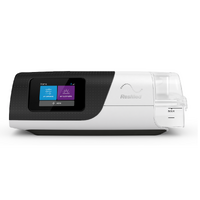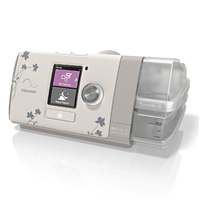CPAP Machines
CPAP machines are essential for individuals suffering from sleep apnea, providing effective therapy by delivering a continuous stream of air to keep airways open during sleep. At CPAP Club Australia, you’ll find a wide range of top-rated CPAP machines from leading brands such as ResMed (the only CPAP Machine designed & manufactured in Australia!), Fisher & Paykel, Philips Respironics and Löwenstein. These brands are renowned for their innovation, reliability, and user-friendly features, ensuring a comfortable and restful night’s sleep.
Whether you’re looking for compact travel-friendly CPAP devices, advanced auto-adjusting machines, or quiet operation for minimal disruption, CPAP Club offers a great selection to meet your needs. Explore our range today to find the perfect CPAP machine tailored to your sleep therapy requirements.
Looking for a CPAP package deal?

Lowenstein Prisma SOFT Max Fixed Pressure CPAP Machine with PrismaAQUA Humidifier & Heated Tube
SKU: LOW319801210
Now $999.00
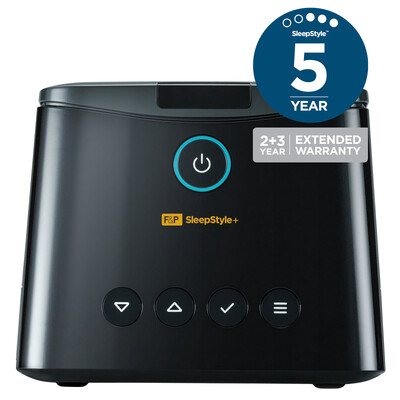
Fisher & Paykel SleepStyle+ Auto CPAP Machine with 5yr Warranty
SKU: FPSSPAAA
Now $1,350.00
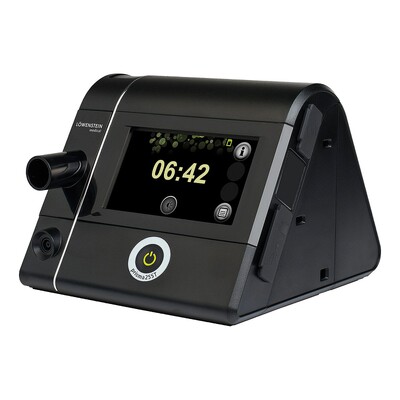
Lowenstein Prisma 25ST BiLevel (AUTO) S/T set with PrismaAQUA Humidifier & Heated Tube
SKU: LOWWM-29920-1111-KIT2
$3,850.00
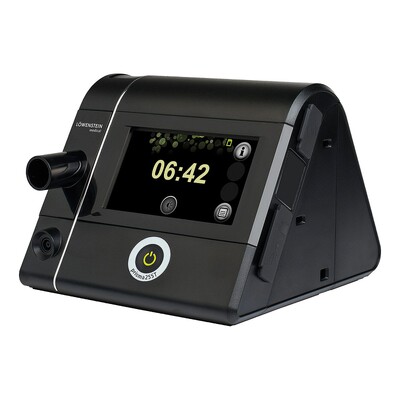
Lowenstein Prisma 25ST BiLevel (AUTO) S/T set with PrismaAQUA Humidifier, Heated Tube & Modem
SKU: LOWWM29920-1111-KIT
$4,140.00

Philips DreamStation Auto BiPAP with Humidifier & Heated Tube
SKU: PHIAUX700T15
Now $1,749.00
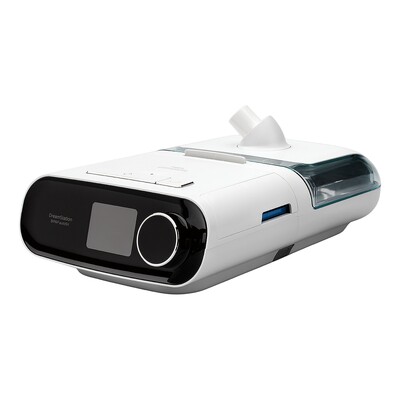
Philips DreamStation AutoSV with Humidifier & Heated Tube
SKU: PHIAUX900T15
Now $2,699.00

PrismaCR AcSV Therapy set with PrismaAQUA Humidifier & Heated Tube
SKU: LOW29960-2111-KIT2
$3,960.00
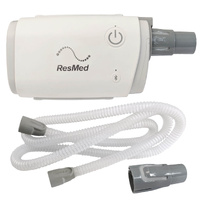
ResMed AirMini Travel CPAP Machine with Hose Connector and Slimline Tube
SKU: RES38140-ANYMASK
Now $995.00

Lowenstein Prisma 20A Auto CPAP Machine with Heated Tube, AQUA Humidifier & 4G Modem
SKU: LOW296001111
Now $2,199.00

Lowenstein Prisma SMART Max Auto CPAP Machine with PrismaAQUA Humidifier & Heated Tube
SKU: LOW319601210
Now $1,690.00

ResMed Lumis 100 VPAP S 4G Wireless Connectivity, HumidAir & ClimateLineAir
SKU: RES28013
$2,750.00

ResMed Lumis 150 VPAP ST 4G Wireless Connectivity, HumidAir & ClimateLineAir
SKU: RES28125
$4,100.00

ResMed Lumis 150 VPAP ST-A 4G Wireless Connectivity, HumidAir & ClimateLineAir
SKU: RES28226
Now $4,650.00

Philips Respironics DreamStation Auto CPAP Machine with Humidifier
SKU: PHIAUX500T15
Now $990.00
Comparing CPAP, APAP & BiLevel/BiPAP Machines: Which PAP Therapy Is Right for You?
What All PAP Machines Do
All three types—Fixed Pressure CPAP, Auto-Adjusting (APAP), and BiLevel/BiPAP—use pressurised air to prevent airway collapse during sleep. They share core components like a blower, mask, tubing, and optional humidification. The differences lie in how pressure is delivered, how flexible the machine is, and what health or comfort needs are being met.
Fixed Pressure CPAP Machines
How They Work
-
Delivers one constant, prescribed air pressure (set by a sleep specialist after a sleep study).
-
The pressure stays the same throughout inhalation and exhalation, night after night.
Best For
-
People with obstructive sleep apnea (OSA) whose pressure requirement is stable.
-
Users who prefer simplicity and predictable treatment.
-
Those with good tolerance of the fixed setting and without major fluctuations (in weight, congestion, sleeping position, or respiratory health).
Pros
-
Lower cost compared to more complex machines.
-
Simple to use and maintain.
-
Fewer settings to adjust; dependable once correctly prescribed.
Cons
-
Less flexible when circumstances change (e.g., nasal congestion, sleeping on back, weight gain).
-
May feel uncomfortable during exhalation for some users if pressure is high.
-
Adjustments in settings generally require another sleep study.
Auto Pressure (APAP) Machines
How They Work
-
Continuously monitors breathing, airflow, snoring, and patterns like partial obstruction, then automatically adjusts pressure up or down to maintain optimal airway patency.
-
Has a preset minimum and maximum pressure range.
Best For
-
Individuals whose pressure requirements vary nightly (due to allergies, congestion, or changing sleep positions).
-
Users who want more comfort and less “fixed-pressure discomfort.”
-
Those starting PAP therapy and/or want flexibility without frequent sleep studies.
Pros
-
More comfortable since pressure adapts to what your body actually needs in real time.
-
Less risk of over-pressure when not needed, which can improve tolerance and adherence.
-
Good option for travel or nights with unusual sleep conditions.
-
Most can operate as a fixed pressure CPAP machine as well via changing settings in the clinician menu.
Cons
-
Slighlty more expensive than their fixed CPAP models.
-
Potentially a more complex device and more settings to understand.
-
Potential for minor pressure fluctuations waking some sensitive sleepers.
-
Not always needed in straightforward, stable cases of OSA.
BiLevel / BiPAP Machines
How They Work
-
Designed to provide two levels of pressure: one higher pressure during inhalation (IPAP), another lower pressure during exhalation (EPAP).
-
Some machines also include modes with a backup breathing rate (for central or mixed sleep apnea or for those with compromised respiratory mechanics).
Best For
-
Patients who struggle with exhaling under constant pressure (especially if fixed CPAP feels too “harsh”).
-
People with more complex respiratory conditions: COPD, obesity hypoventilation syndrome, neuromuscular disorders, or central sleep apnea.
-
Under certain medical conditions for users who require higher pressures at inhale but need easier exhalation
Pros
-
More comfortable breathing cycle (easier exhale).
-
Greater flexibility for health conditions needing assisted ventilation support.
-
Capable of handling higher pressures without discomfort on exhalation.
-
Some models with auto-BiPAP or adjustable IPAP/EPAP offer hybrid options.
Cons
-
Generally the most expensive of the PAP therapies.
-
More complex setup; requires careful prescription and monitoring.
-
More moving parts and settings means more potential for error or improper use.
-
Usually bulkier; might be less travel-friendly.
Side-By-Side Comparison Table
| Feature / Factor | Fixed Pressure CPAP | Auto Pressure (APAP) | BiLevel / BiPAP |
|---|---|---|---|
| Pressure delivery | Single, constant | Automatically varied within range | Two pressure levels (inhale / exhale) |
| Comfort during exhalation | Can be harder if pressure high | Usually better adapts (subject to settings) |
Potential for comfortable exhale (depnding on medical condition) |
| Flexibility with changing conditions | Low | High | High |
| Ideal for complex respiratory issues | No | Sometimes | Yes |
| Cost | Lowest | Moderate to higher | Highest |
| Complexity of setup & adjustment | Simple | Moderate | More complex |
| Travel-friendliness | Good (though we'd recommend a Travel PAP Machine if space is restricted) |
Good (though we'd recommend a Travel PAP Machine if space is restricted) |
Varies; bi-level units can sometimes be bulkier |
| Prescription Required |
No |
No | Yes |
How to Choose the Right One
-
Start with a sleep study: Your health professional should determine pressure needs, severity, and any complicating conditions.
-
Think about comfort: If fixed pressure feels uncomfortable, especially when exhaling, APAP or BiPAP might be better.
-
Consider future changes: If you anticipate changes like weight gain, seasonal allergies, or shifts in sleep position, a more flexible device may save you adjustments later.
-
Portability: If you travel frequently, weigh unit size, battery options, and whether BiPAP modes might limit travel convenience.
Summary
-
Fixed Pressure CPAP: Reliable baseline therapy, great for most users with stable OSA needing a straightforward solution.
-
APAP: Offers dynamic response to your changing breathing needs through the night. Enhances comfort, especially when fixed CPAP feels strict.
-
BiLevel/BiPAP: Reserved for higher needs: conditions that require more ventilatory support, difficulty exhaling, or mixed/central sleep apnea. Prescription required.
At CPAP Club, we recommend discussing these options with your sleep health specialist. Choosing the right machine type can make all the difference in comfort, adherence, and the effectiveness of your sleep apnea treatment.







